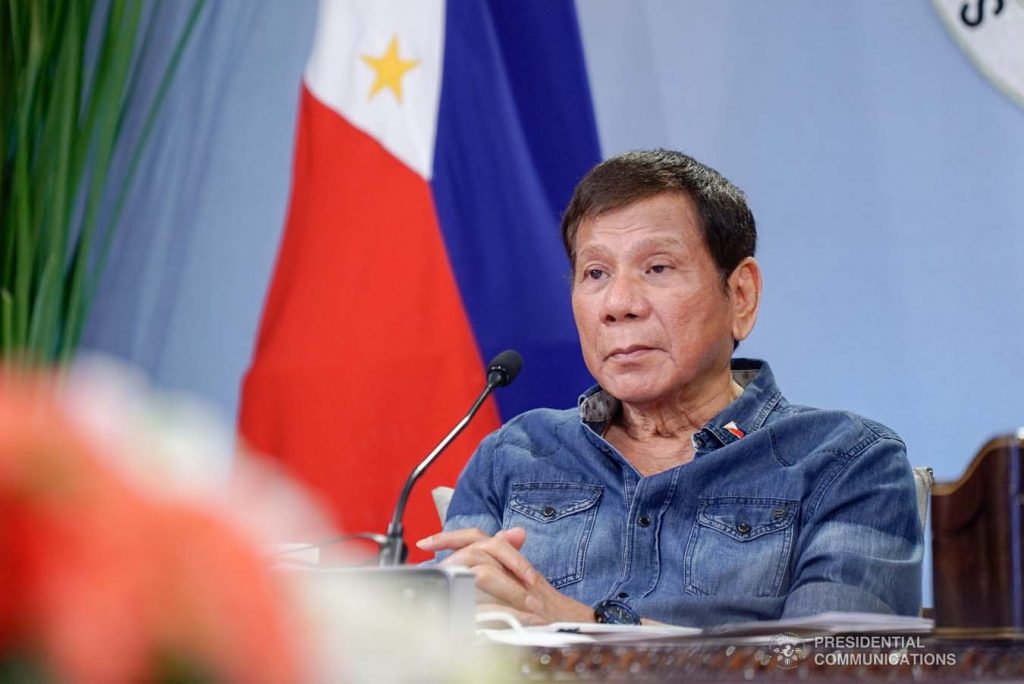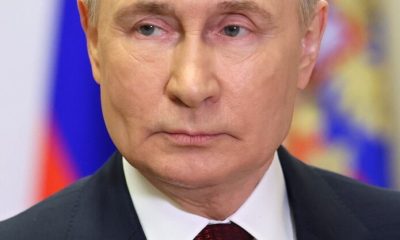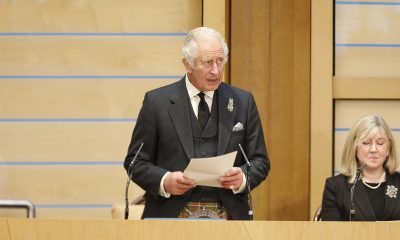Headline
PRRD won’t surrender PH’s sovereign rights over WPS: Palace

MANILA – Malacañang on Thursday assured the public that President Rodrigo Duterte will not surrender the Philippines’ sovereign rights over the West Philippine Sea (WPS) despite its improving ties with China.
Presidential Spokesperson Harry Roque made the assurance, a day after Duterte said he would not “bargain” the Philippines’ sovereignty over WPS with its friendship with China.
“It is in connection doon sa pangako niya na walang teritoryong mawawala sa atin habang siya po ay Presidente (It is in connection with his promise that we will not lose any territory while he is the President),” Roque said in a virtual press briefing.
Roque also said there was nothing wrong with Duterte’s latest statement that the Philippines has a “huge debt of gratitude” to China for donating 1 million Sinovac’s CoronaVac vaccines against the coronavirus disease 2019 (Covid-19).
“Hangang ngayon naman po, ang aasahan lang natin, Sinovac. Aminin po natin iyan. Ilang buwan na tayong nagsimula eh Sinovac ang naaasahan talaga natin. So tama lang po na tumanaw ng utang na loob (Until now, we only rely on Sinovac. Let’s admit that. It has been months since we started our vaccination and it’s only Sinovac that we can rely on. It’s only right to honor our debt of gratitude),” he said.
Starting war a ‘crime of aggression’
In a public address delivered Wednesday night, Duterte vowed that the Philippines’ sovereign rights over the WPS would not be compromised, even if China is the country’s “good friend”.
Duterte, however, said he has no plan to launch a futile war against China.
Roque, citing international law, said waging a war against any country is a “crime of aggression.”
“‘Yung punto na hindi tayo pupuwedeng magsimula ng giyera iyan po ay nakaukit na sa international law, krimen nga po iyan kapag tayo ay gumamit ng dahas, iyan po iyong crime ng aggression (In terms of launching a war, the international law states that it is a crime of aggression to use violence),” he said.
The International Criminal Court (ICC) defines the crime of aggression as the “planning, preparation, initiation or execution, by a person in a position effectively to exercise control over or to direct the political or military action of a State, of an act of aggression which, by its character, gravity and scale, constitutes a manifest violation of the Charter of the United Nations.”
The act of aggression, according to the ICC, is the “use of armed force by a State against the sovereignty, territorial integrity or political independence of another state, in any other manner inconsistent with the Charter of the United Nations”.
China’s actions monitored
Duterte, while he intends to further improve ties with China, wants to ensure the public that there is a “limit” to Manila’s friendship with Beijing, Roque maintained.
“Malinaw ang sinabi ni Presidente. May hangganan ang kaniyang pagnanais na pagkakaibigan sa Tsina. Siguro ‘yung pangingisda, puwedeng mangyari pero kapag langis na ang pinaguusapan, paninindigan na (He made a clear stance that there’s a limit to his friendship with China. He may allow fishing but he would not allow oil exploitation. He would make a strong stance),” Roque said.
Roque added that the Philippines is currently monitoring China’s actions.
“At ang sabi nga po niya bagama’t wala siyang magawa at nadatnan niya ang problemang ito ay tinitingnan din niya kung ano ang mga susunod na hakbang ng Tsina (He said that while he could not do anything and the problem was there even before his term, he is monitoring China’s next steps),” he said.
On April 14, the Department of Foreign Affairs filed two diplomatic protests against China amid the prolonged presence of its vessels in WPS.
The National Task Force (NTF) for WPS reported Wednesday the continued illegal presence of three Chinese Coast Guard (CCG) vessels in Bajo de Masinloc, one CCG vessel in the municipality of Kalayaan, and one CCG vessel in Ayungin Shoal.
The NTF-WPS said the Philippine government continues to patrol WPS in the exercise of its sovereignty and sovereign rights under the Philippine Constitution and international law.
It added that the government shall not waver in pursuing “peaceful, rules-based and proactive initiatives on environmental protection, safety of navigation, maritime and food security within our maritime domains.”



























